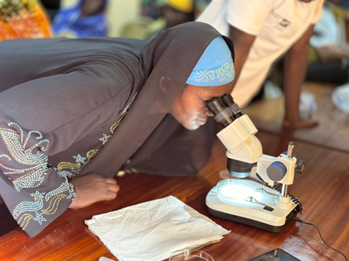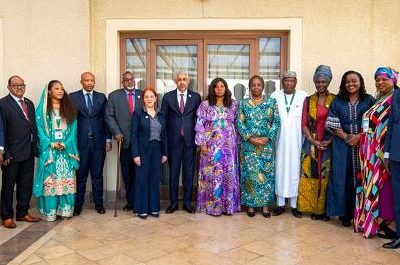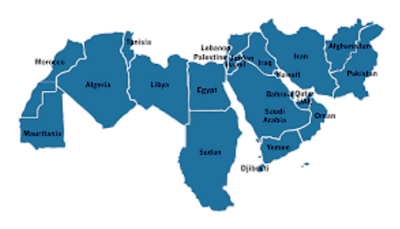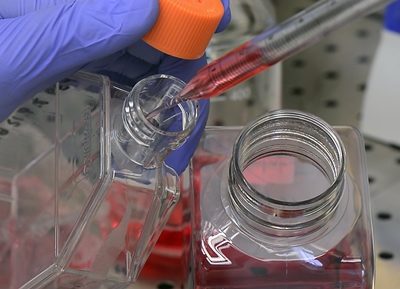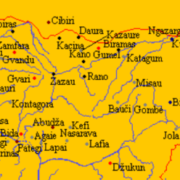Malaria is endemic throughout Burkina Faso, with the entire population at risk of getting infected. Most at risk are women and children who are disproportionately affected. Recognising their vital role as both primary caregivers and the most vulnerable to malaria’s impact, Target Malaria is engaging women and the youth to ensure that they are informed, involved, and empowered to take part in the adoption of existing vector control tools, as well as new tools, such as gene drive mosquitoes, in the future.
According to the Ministry of Health of Burkina Faso, malaria accounts for 43% of consultations with a health provider, over 60% of hospitalisations and 30% of deaths. In 2022, the World Health Organisation (WHO) noted that there were an estimated 8 million malaria cases and over 16,669 estimated malaria-associated deaths in the country.
“Although disease does not discriminate, women shoulder the societal and economic burdens of malaria. This disease thrives in poverty, intensifying hardships and deepening existing inequalities,” says Dr Lea Pare Toe, Stakeholder Engagement Lead for Target Malaria Burkina Faso.
A gendered approach to the fight against malaria
According to a report by RMB Partnership to End Malaria and Malaria no More titled ‘The case for investing in a gendered approach to the fight against malaria,’ hundreds of millions of pregnant women and children under the age of five are particularly vulnerable to malaria, with children under five making up 2/3 of all malaria deaths. Others—especially adolescent girls—fall through the many gendered gaps in the provision of malaria services, sometimes with lifelong consequences.
Target Malaria, a not-for-profit research consortium, is pioneering the use of gene drive, a natural genetic mechanism, to spread a genetic modification in malaria mosquitoes that biases the rate of inheritance and affects their ability to reproduce. This innovative approach holds the promise of being a potential sustainable and cost-effective method to reduce the population of malaria mosquitoes and ultimately halt malaria transmission in the future.
How gene drive technology works
“The fields of science and research need more women, along with more engagement with women, youth and children in communities,” says Dr Pare Toe. She adds that a big focus in her role is to engage local communities in Bobo-Dioulasso and in the villages of Bana and Souroukoudinga. “Our team focuses on women and youth, harnessing their pivotal role in raising awareness on current, and potential malaria intervention and treatment.”
The engagements involve organising community meetings, educational workshops, interactive theatre sessions, and being part of Voices from the Field – a video series that gives community members the opportunity to share their experience with malaria and their views on Target Malaria’s work.
This dialogue aims to foster a better understanding of how gene drive technology works and its potential impact on communities. These activities are essential for the teams and the communities to get to know each other, build trust, and create conduits for regular communication.
Gender dynamics in malaria transmission and treatment
“Women are often the first responders in their families when it comes to healthcare, and small children are the ones who suffer the most from malaria’s devastating effects,” says Dr Pare Toe.
“Women, especially in rural and underserved communities, often have limited autonomy and access to financial resources, which can restrict their ability to seek timely and adequate healthcare. Additionally, societal norms and responsibilities, such as childcare and household management, increase their exposure to mosquito bites, particularly during the early morning and late evening when mosquitoes are most active,” says Krystal Birungi, Field Entomology Coordinator for Target Malaria Uganda.
Adult women are not alone in their caregiving. Young girls are frequently tasked with looking after their sick siblings, ensuring further loss of educational opportunities.
“Our mission extends beyond scientific innovation; it embodies a commitment to co-development, excellence and accountability, recognising the invaluable contributions of African women in the fight against malaria,” adds Dr Pare Toe.

The effect of a malaria-free world
A recently launched ‘Malaria Dividend’ report commissioned by Malaria No More UK, a future free of malaria would drastically impact the development of malaria-endemic countries. It would particularly alleviate the disease burden on African women and children, enabling healthier families and communities. Lower child mortality rates would allow more children to reach their full potential and contribute to a more equitable and educated society and a thriving economy.
Women, freed from the debilitating impacts of malaria, would be able to participate more fully in the workforce and community life, driving economic growth and development.
“With fewer resources spent on treating malaria, families would have more to invest in education, nutrition, and other essential needs. Countries would save billions in healthcare costs and loss of productivity, funds that could be redirected towards infrastructure, education, and other critical areas. As economies strengthen, the overall quality of life improves, reducing the gap between the rich and the poor,” adds Birungi.
A world free of malaria
“As we work towards a world free of malaria, we have invested in African scientists, including capacity building, mentorship, and skills development, to nurture the next generation of African scientists so that their voices are heard, and skills used, concludes Dr Pare Toe.”
The journey may be neither perfect nor easy, but significant progress has been made. By empowering African communities and embracing collaborative, innovative approaches like Target Malaria and other research initiatives, there is the potential to create a truly transformative impact.

